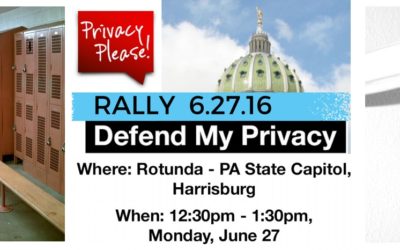Key Points
- The UPA treats children born through surrogacy as second-class, denying them the same safety checks—like background checks and home studies—required for adopted children placed with unrelated adults in non-surrogacy contexts.
- The UPA creates a system that carves out special treatment of adults using surrogacy that bypasses most of the critical screening factors for awarding custody in Title 23, and the Adoption and Safe Families Act.
- The UPA legalizes genetic surrogacy for profit, unlike current law, which limits surrogates using their own eggs to expense-only payments. Incentivizing the separation of a mother and her baby is not ethical and will lead to more coerced separations.
- This bill exploits both women and children, treating them as commodities to be bought rather than humans with inherent dignity.
- The UPA allows for paid surrogacy arrangements using natural conception (paid intercourse for pregnancy).
SUMMARY
House Bill 350 redefines parentage to be established based on intent rather than on biology. While attempting to streamline the current surrogacy process, HB 350 denies protections to children conceived via surrogacy, and it expands gestational and genetic surrogacy for commercial purposes. The Uniform Parentage Act even allows for paid surrogacy arrangements using natural conception (i.e., paid intercourse for pregnancy). See Section 9823(c).
Status Quo on Surrogacy in Pennsylvania:
Currently, case law and judicial oversight determine how surrogacy operates in Pennsylvania. Gestational surrogacy (where a surrogate is impregnated using a donor egg unrelated to her) and genetic surrogacy (where a surrogate mother using her own egg is impregnated) are treated differently.
In cases of gestational surrogacy, which is the most common, a couple or individual who intend to be the parents of the baby they contracted via surrogacy will submit an order to a judge and ask to become the baby’s legal parents and to be placed on the baby’s birth certificate in place of the surrogate mother. Currently, judges in Pennsylvania can approve this parentage request and as part of the process, they can call a hearing to further examine the couple as an important layer of protection for babies created through surrogacy. Additionally, surrogacy lawyers in Pennsylvania encourage intended parents, especially in cases where one or both of the individuals is not related to the baby, to go through a confirmatory adoption to ensure parentage is clearly established. This ensures another level of protection for children created through surrogacy, as adoptions require crucial safety checks like home visits and background checks.
In cases of genetic surrogacy, the baby will be biologically related to the surrogate mother and parentage cannot be established before the baby is born. The couple or individual who want to obtain this child must formally adopt the baby after the baby is born. Women who go through genetic surrogacy are also currently prohibited from being paid for anything besides her expenses, based on the same laws that prohibit parents from putting their child up for adoption for profit.
What Does HB 350 Claim to Fix?
Proponents of HB 350 claim that, given the lack of legislation on surrogacy and the fact that judges can use individual discretion to hold hearings to establish parentage, we need uniformity for our surrogacy laws.
What Would HB 350 Actually Do?
HB 350’s “solution” is to automatically establish parentage on the basis of stated intent and does not require judicial oversight, which at least provided some protections to children conceived through surrogacy. This bill goes in the wrong direction, and instead of uniformly creating higher standards to protect the child, it treats children born through surrogacy as second-class, denying them the same safety checks—like background checks and home studies—required for adopted children placed with unrelated adults in non-surrogacy contexts. We must ensure that children have safe homes and HB 350 sacrifices children’s need for safe, loving homes in the name of ease and expediency for adults. Statistically the most dangerous person in a child’s life is a non-biologically related adult in the home. This certainly does not mean that is true for every non-biologically related adult in the home – however, it is why we have such stringent and thorough adoption laws.
In cases of genetic surrogacy where the surrogate is using her own egg and is therefore biologically related to the child, a court order would still be required, but unlike the status quo, the UPA would allow parentage to be established prior to birth and without an adoption. The UPA allows genetic surrogates to be paid for profit, above and beyond covering their expenses. See Section 9823(c) line 21-25. This is a radical departure from the status quo and would, in effect, allow women to sell their own biological children through surrogacy.
HB 350’s Post-conception validation for genetic surrogacy can be abused. Subchapter C Section 9824(b) says that with the agreement of all parties, the court may validate a genetic surrogacy agreement after assisted reproduction has occurred, as long as it is before the birth of the child. Under this bill, a woman could potentially undergo the necessary screenings, become pregnant via IUI (intrauterine insemination), and then “match” with the highest bidder before validating a contract with them. Currently, a pre-birth order is not allowed because the surrogate cannot terminate her parental rights until 72 hours after the child’s birth.
The Uniform Parentage Act even allows for paid surrogacy arrangements using natural conception (i.e., paid intercourse for pregnancy). Subchapter C Section 9823(c) allows for surrogacy contract (including a for-profit surrogacy contract) even if the child was conceived via intercourse instead of ART. “Unless the genetic surrogacy agreement provides otherwise, if the child was not conceived by assisted reproduction, the genetic surrogate is not entitled to any non-expense-related compensation paid for serving as a genetic surrogate.” By stipulating that “unless the genetic surrogacy agreement provides otherwise,” the bill permits paid intercourse for pregnancy.
TAKE ACTION
Take Action: Tell Your Legislators to Oppose the Uniform Parentage Act
Act Now
ARTICLES
Article: Bucks Independence (8/13/25, Cheryl Lynn Allen, Patience Sunne) Surrogacy bill puts children in harm’s way.
Article: HealthDay (7/29/25, Mundell). Surrogate moms without prior mental illness were 43% more likely to develop a mental illness for the first time compared to moms who conceived and carried their own baby. The study was published in JAMA Network Open.
Article: Broad & Liberty (6/17/25, Cheryl Lynn Allen) Pennsylvania must reject the Uniform Parentage Act to protect children’s rights.
Related Articles
State Budget Should Increase Education Tax Credits, Expand School Choice
We've reached crunch time on PA budget talks here in Harrisburg and one thing you can remind your elected officials about is making sure they help more families find the best education option for their children. Two statewide programs, the Education Improvement Tax...
Bipartisan School Choice Bill Passes House with 73% Support (Roll Call)
The PA House of Representatives overwhelmingly passed an expansion to Pennsylvania's landmark school choice program that has helped thousands of families find the best education option for their children. HB250, championed by State Representative Mike Turzai, passed...
Yes on HB250 – Help give more families education options
Legislative Alert: House Bill 250 Pennsylvania’s landmark programs, the Education Improvement Tax Credit (EITC) and Opportunity Scholarship Tax Credit (OSTC), have helped parents make the best choice for their children’s education. Under these programs, businesses are...
PA Family Institute: Why We Do What We Do
Pennsylvania Family Institute is the state's leading pro-life, pro-family advocacy organization. Your partnership with us helps to advance the core issues of life, marriage and family and religious freedom throughout the Commonwealth. Click here to contribute.
Friday, October 21 – Friends of the Family Banquet
"Outstanding"..."Very encouraging"..."Refreshing"..."I'm still in awe of Friday evening!" Pennsylvania Family Institute is privileged and grateful to receive these and many other compliments from those attending our annual Friends of the Family banquet - what has...
Want a Ride to the Defend My Privacy Rally on June 27th?
Do you want to attend the Defend My Privacy Rally on Monday, June 27th at the Capitol, but you don't want to drive to Harrisburg? We have buses available from several different locations around the state: Lancaster Reading Millersburg Gibsonia Monroeville Washington,...
Temporary Victory on PA Bathroom Bills in House and Senate
IN THE SENATE: Thank you to everyone who contacted their State Senator regarding SB 1306, SB 1307 and SB 974. Because of the amount of phone calls received and the important concerns you shared with your senators, the committee vote that was scheduled for Wednesday...
Keep it Up! Contact your State Senator to Vote NO on the Bathroom Bills
GOOD WORK to those who have reached out to their State Senator regarding the Bathroom Bills (SB 1306, SB 1307, and SB 974). Phones over at the State Senate are ringing off the hook! But, the work is not over yet. Some Senators still misunderstand the implications of...




